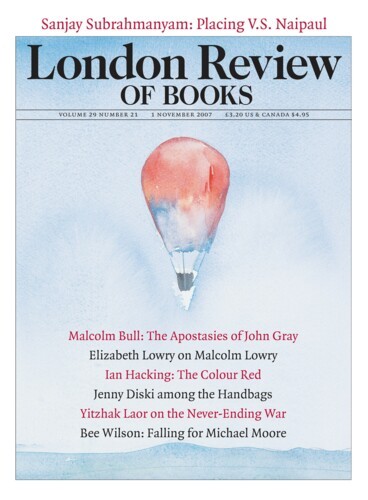In Venezuela at the end of June, Evo Morales, Hugo Chávez and Diego Maradona, three heroes of the people in Latin America, kicked off the Copa América. Morales, pleased with his dribbling, kept possession for rather longer than might have been thought polite. When he passed, Chávez, instinctive politician that he is, at once flicked the ball on to the feet of the Hand of God. (He originally wanted to be a baseball player. Football is not his game.) What was important was that his largesse had secured the Copa for his country, thereby strengthening his popular appeal at home, enhancing his determination to be a presence in Latin America, and allowing him to cast a mote, as he likes to do, in the eye of the United States.
Pirates of the Caribbean: Axis of Hope by Tariq Ali. Democracy and Revolution: Latin America and Socialism Today by D.L. Raby. Venezuela: Hugo Chavez’s Revolution, Latin America Report No. 19 by International Crisis Group. In Venezuela at the end of June, Evo Morales, Hugo Chávez and Diego Maradona, three heroes of the people in Latin America, kicked off the Copa América. Morales, pleased with his...





